Acne is a skin condition characterized by pimples, whiteheads, and blackheads on the face. It often causes scars and dark spots, which can be permanent. Many treatment options help you treat your Acne and eliminate your breakouts, but not all products work for everyone. Find out which 8 treatments were ranked as the best acne products in this article!
What is Acne?
Acne is a skin condition that causes pimples, blackheads, and whiteheads. Acne generally affects the face, neck, chest, and back. It can also occur on your shoulders, upper arms, and buttocks.
Acne usually begins during puberty when your body goes through changes and produces more oil (sebum) than usual. Sebum is a natural substance that lubricates our skin and hair. Sebum forms a protective barrier on the skin's surface to protect itself from bacteria.
When this protective barrier becomes clogged with dead skin cells, dirt, and excess oil from the scalp, it can cause an infection in the hair follicle. This leads to inflammation of the hair follicle called acne vulgaris. Acne commonly appears as black or whiteheads keratin (a protein found in hair).
A comedo is a plugged hair follicle covered by a thin layer of skin (whitehead). When this plug is pushed to the skin's surface by swelling surrounding tissues, it becomes visible as a blackhead (open comedo).
What Causes Acne?
Acne is a skin condition that affects the hair follicles and the oil glands on your skin. It can cause small pimples (blackheads or whiteheads) or, more significantly, redder pimples (papules) or cysts.
Acne usually appears on the face, neck, back, and chest. It often starts during puberty and tends to improve at around age 25. But it can continue into adulthood.
There are many different causes of Acne:
- Hormones: boys and girls start to produce more hormones during puberty, which causes their bodies to start producing more sebum. This makes pores clog pores dead skin cells, which can lead to acne breakouts.
- Improper hygiene: if you don't wash your face regularly enough, dead skin cells will build up on your face and clog up your pores, leading to blackheads or whiteheads (comedones).
- Genetics: some people may be more prone to Acne than others due to their genetics; however, this doesn't mean they will always have bad skin!
- Excessive oil production in your skin: Hormones (mainly testosterone) can stimulate oil secretion from the sebaceous glands, leading to clogged pores and acne breakouts.
- Bacteria growing in the blocked follicle: When dead skin cells are produced faster than shed, they can clog pores and form comedones (blackheads), whiteheads, or pustules (pimples). This results in inflammation and redness around each affected follicle.
While the true biological and scientific causes of Acne are not yet known, several factors contribute to the development of Acne. The most common factors include the following:
- Dietary factors: intake of dairy products and high glycemic foods such as sugar, flour, potatoes, etc. can increase the production of insulin which is responsible for increasing the production of sebaceous glands (produces sebum)
- Hormonal factors: hormones like testosterone, estrogen, and progesterone cause sebum overproduction, which is responsible for increasing the number of acne lesions.
- Environmental factors: UV radiation from sun exposure can damage our skin cells and increase inflammation in our body, which is responsible for increasing the number of acne lesions.
Signs And Symptoms of Acne
While Acne affects nearly 50 million Americans, most people experience it during adolescence when their hormone levels fluctuate. But even adults can develop Acne if their diet is unbalanced or if they have severe stress in their lives.
The most common form of Acne is called comedonal Acne (or whiteheads and blackheads). Acne doesn't cause pustules but red bumps on the skin's surface.
Acne symptoms vary greatly depending on what type of Acne you have:
- Whiteheads: Also known as closed comedones, these are small openings in the follicle wall where sebum has built up without reaching the skin's surface and are hard to see because they're covered by skin cells.
- Blackheads: also known as open comedones, are similar to whiteheads except that they have been exposed to air for some time before healing with skills. Blackheads look like small plugs protruding.
- Papules: are inflamed lesions (bumps) that vary in size from small to large and are red or pinkish in color. Papules are generally round, but they can appear oval-shaped if pressed against the skin's surface or stretched out by pressure on top of them (such as leaning back against something).
Which Treatment is Best For You
Acne is a skin condition that affects the face, back, chest, and upper arms. Although it's familiar, it's not something to take lightly. Left untreated, Acne can lead to permanent scars and dark spots.
If you're having problems with Acne, treatments are available to help you get your skin back to its healthy state. But how can you determine which treatment is best for you? Here are some things to consider when deciding whether over-the-counter or prescription medication is suitable for your skin:
- Your age. Over-the-counter products are generally safe for teens, but using them as a young adult may not be effective. If you're in your late teens or early 20s and have mild-to-moderate Acne, using an OTC product may be sufficient to clear up breakouts. However, if your breakouts are severe or if they haven't responded well to OTC treatments after several months of use, it may be time to see a dermatologist or another healthcare provider who specializes in treating skin conditions (dermatologist).
- Your gender. Women tend to respond better than men when taking birth control pills as an acne treatment because they regulate hormones that promote oil production in the body.
There are several treatments available for Acne. The best treatment for your Acne depends on its severity and your age. Treatments include over-the-counter products such as cleansers, toners, and creams; prescription medications such as antibiotics; chemical peels; light therapy; laser therapy; and surgery to remove scarring from previous breakouts.
Treatment Products
Tretinoin
Tretinoin (Vit. A acid) is a chemical found in the human body and in foods like carrots, broccoli, and squash. When applied to the skin, it helps increase cell turnover, leading to smoother skin with fewer fine lines and wrinkles. Tretinoin creams and gels cannot be purchased over the counter; they are available by prescription only from your dermatologist.
| Product Type | Prescription | Type of Acne | Pros | Cons |
|---|---|---|---|---|
|
Topical cream or gel |
Yes |
noninflammatory |
pro-aging and exfoliating benefits |
can lead to slight peeling |
Tazorac
Tazorac is a retinoid usually prescribed at 0.1 percent strength for Acne. It's available in two forms: Tazorac gel, recommended for mild to moderate breakouts on the face, and Tazorac cream, which may be prescribed for some severe cases, such as cystic Acne or Acne on other areas of the body. This product is not recommended for people who are pregnant or trying to get pregnant. Dermizax contains tazarotene, which may increase sun sensitivity and photosensitivity in some users.
| Product Type | Prescription | Type of Acne | Pros | Cons |
|---|---|---|---|---|
Topical cream or gel | Yes | noninflammatory/ moderate inflammatory | Safe for certain | may increase skin sensitivity to cold weather |
Altreno
Altreno is a lightweight lotion that targets breakouts while moisturizing skin. Unlike other tretinoin prescription medications, which usually take the form of topical cream or gel, Altreno is an ultra-light lotion that penetrates deep into pores to clear away clogged pores and reduce oil production.
| Product Type | Prescription | Type of Acne | Pros | Cons |
|---|---|---|---|---|
Topical Lotion | Yes | noninflammatory | Lightweight formula | Skin Irritation |
Oral contraceptives
If you are experiencing Acne, you can receive treatment through oral contraceptives. Though not its primary function, combination birth control pills can be prescribed as part of an acne treatment in people assigned to females at birth. Oral contraceptives contain hormones that decrease the circulation of androgens, thereby decreasing sebum production. This helps regulate oily skin and make acne-prone skin more manageable.
| Product Type | Prescription | Type of Acne | Pros | Cons |
|---|---|---|---|---|
Oral Pills | Yes | Hormonal | Regulates skin oil | available to people assigned female at birth |
INN Beauty Project Pimple Paste
This gentle sulfur-based spot treatment is excellent for those with moderate to severe Acne, thanks to its powerful formula. Its active ingredients include sulfur and azelaic acid, which work together to decrease redness and inflammation, inhibit clogging pores, and kill bacteria. Lightweight, non-drying acne spot treatment quickly reduces the appearance of Acne so you can focus on what really matters. Sulfur, azelaic acid, and tea tree oil help fight existing pimples and prevent new ones from forming. Plus, witch hazel helps calm redness and irritation.
| Product Type | Prescription | Type of Acne | Pros | Cons |
|---|---|---|---|---|
Spot treatment | No | inflammatory | clean and gentle ingredients | contains a small amount of product |
Choosing The Proper Acne Treatment
Choosing the right acne treatment product can be difficult. Many types of products are available, each with its benefits and drawbacks. Your Acne type can also affect how well a product works for you.
Most treatments for Acne fall into two categories: topical products (applied to the skin) and oral medications (taken by mouth).
Topical treatments include:
- Salicylic acid: A beta hydroxy acid (BHA) that exfoliates dead skin cells from the top layer of skin. It reduces clogged pores and helps reduce inflammation. Salicylic acid is available as a face wash or gel, as well as pads or strips applied directly to individual pimples. These products are often used with other acne medications, such as benzoyl peroxide or retinoids.
- Retinoids: Vitamin A derivatives that help prevent clogged pores by promoting the shedding of dead skin cells from the upper layers of the skin (epidermis). Retinoids also help unclog pores by reducing the number of oil-producing glands in oily areas of the face, such as the forehead and chin. Topical retinoids include tretinoin (brand name Retin-A) and adapalene.
Prevention
Good habits can keep your skin in good shape.
You're what you eat, and that's especially true for your skin. A healthy diet can help prevent Acne and other skin problems, while unhealthy eating habits can worsen them.
Here are some tips to help keep your skin clear:
- Eat more fruits, vegetables, and whole grains. These foods provide antioxidants that reduce oxidative stress on the body. Antioxidants also help repair damaged cells caused by free radicals, unstable molecules that may damage healthy cells. This is particularly important for people with acne-prone skin because free radicals can increase inflammation and cause breakouts.
- Drink plenty of water. Water helps keep your body hydrated, preventing it from becoming too acidic or too alkaline. Water also helps flush out toxins from your system through urination and perspiration.
- Wear sunscreen every day — even if it's cloudy outside or if you're going inside soon after being outside for a short period. Sun exposure damages the top layer of skin cells known as keratinocytes (a type of hairless cell) that produce melanin (the pigment in our skin). This damage leads to depigmentation — brown spots.
- Use warm water and mild soap to wash your face daily, then pat dry with a clean towel. Do not scrub hard or use strong cleansers or astringents that can irritate the skin.
- Apply a small amount of moisturizer after washing your face. Moisturizing helps keep your skin from drying out, making it more susceptible to acne breakouts. If you have oily skin, look for oil-free moisturizer products that won't clog pores and cause additional breakouts.
- Avoid touching or picking at blemishes (whiteheads) and blackheads, as this can spread bacteria and aggravate the problem by causing new blemishes to form under the surface of your skin near the original blemish site.
- Avoid using makeup when possible; if you wear makeup, choose non-comedogenic products that do not clog pores or cause irritation on your skin.
Wrap Up
If you're looking for the best acne treatment, look no further! We have compiled a list of five products that we believe are the best on the market. With so many options available, it can be hard to know which product is right for you. However, with this list, you can be sure that you are getting only the best of the best. So what are you waiting for? Go out and get yourself one (or all) of these great products and start seeing results!

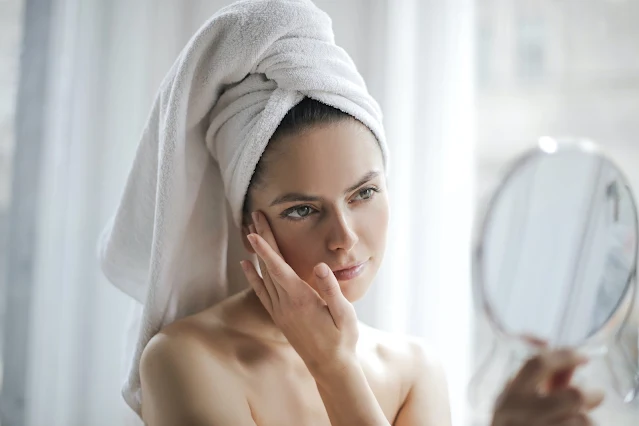
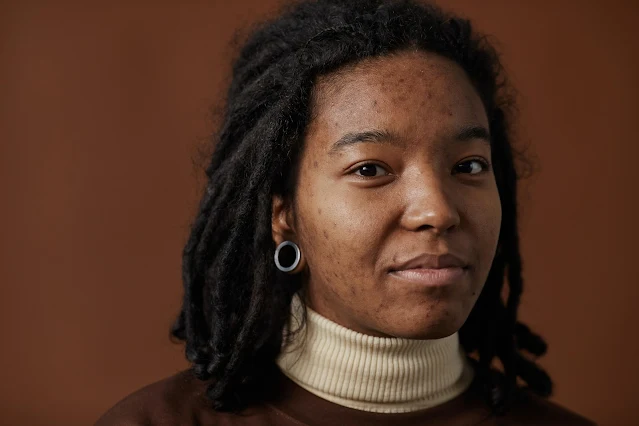

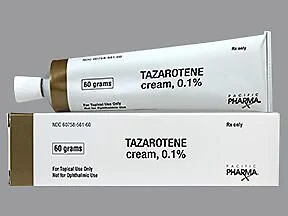
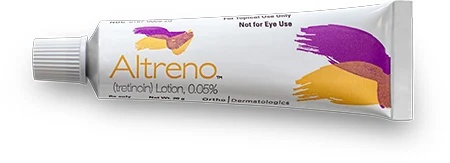
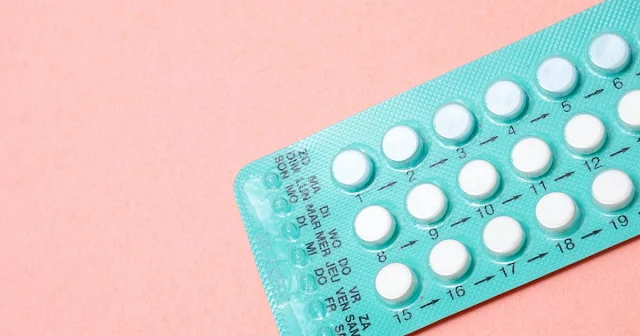
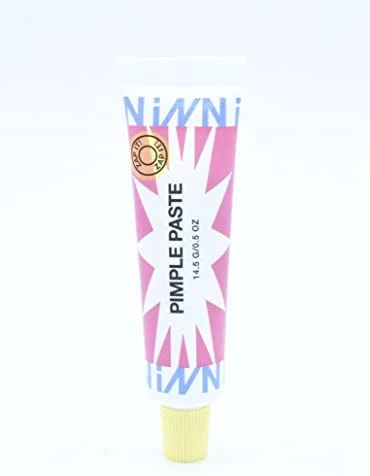
Post a Comment